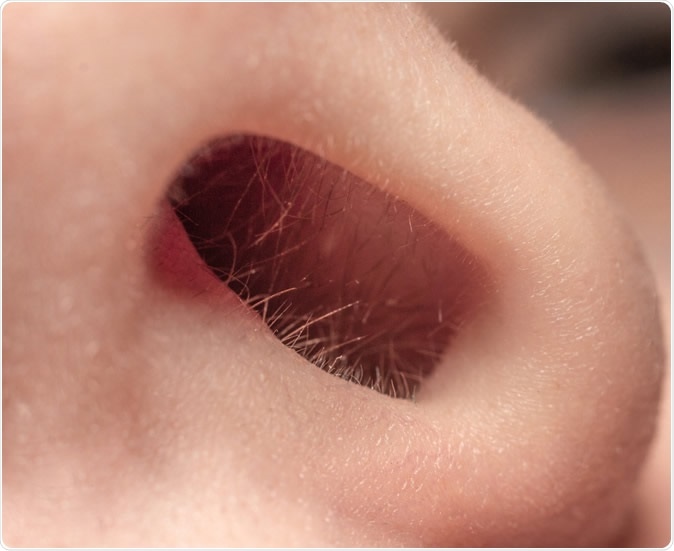It has been previously known that major traumatic brain injury (TBI) may cause a broad range of side effects, including loss of the sense of smell. Now, researchers reveal that it’s true even for minor concussions.
Researchers at the University of Montreal in Canada that even mild traumatic brain injury (TBI) may cause changes in the olfactory function temporarily. The concussion may also lead to affective problems like depression and anxiety.
Mild concussions can happen anytime, like falling off a bike, tumbling on the ski slopes, slipping on wet grounds, or hitting the head on a pole. All these accidents may trigger olfactory and anxiety problems.

Image Credit: Shutterstock
Olfaction and affective states in patients with mild traumatic brain injury
In the study, which was published in the journal Brain Injury, the researchers wanted to evaluate olfaction at 24 hours after the concussion, and at follow-up after 1 year. They also studied the influence of cognition and affective states on the olfactory function in patients who had mild traumatic brain injury (TBI).
To test the olfactory function, the researchers visited the patients in the alpine ski resort in Switzerland from December 2016 to February 2017. Most of the patients with concussion injuries had skiing accidents.
They followed 42 patients, of these, 20 had mild traumatic brain injury (TB) or mild concussion, and 22 suffered orthopedic injury, or broken limbs but had no concussion. The researchers analyzed data within 24 hours of the accident by asking the patients to identify synthetic smells of garlic, roses, solvent, and cloves, among others.
More than half of mild TBI patients had a decreased sense of smell
They found that 55 percent of the people with mild TBI had a decreased sense of smell, compared to just 5 percent of those with broken or fractured bones.
After one year, the patients were followed-up with questionnaires and a set of scratch-and-sniff booklets. The researchers compared the two group results at 24 hours baseline and at one year after the accident. They found that most of those with olfactory issues at baseline gained their sense of smell back within six months of the accident.
Also, one year later, there was no difference in the olfactory scores between the two groups. But, patients with mild concussions that showed hyposmia or decreased sense of smell at baseline manifested increased anxiety levels and other post-concussion symptoms than patients who had mild TBI but with normal olfactory function at baseline.
Though the olfaction problem diminished months after the accident, the anxiety symptoms such as feelings of worry, sudden feelings of panic, and problems in relaxing, did not decrease. In fact, approximately 65 percent of the patients with mild concussions reported these symptoms.
“In the acute phase of mild TBI, a majority of patients has impaired olfactory function. Further patients with olfactory dysfunction are more likely to exhibit post-concussion and anxious symptoms at follow-up. Olfactory testing in the acute phase may, therefore, serve as a screening tool for long-term outcome,” the researchers concluded in the study.
"A lot of people will suffer a mild concussion at some point in their life, so realizing they have trouble smelling is the first step to telling their doctor about it," Fanny Lecuyer Giguère, lead author and a doctorate candidate in neuropsychology, said in a statement.
"It's important that patients report any loss of smell because it's not something their general practitioner or emergency-room physician normally asks about,” she added.
Better clinical evaluation and treatment
Being able to identify the problem early on in patients with a mild concussion could provide an individualized assessment and treatment. It can also provide a better follow-up to see if the loss of smell and anxiety continue even after several months after the accident.
Also, in some patients, they may not consider the loss of smell a post-symptom of the concussion. Doctors should educate the patients to check if the symptoms appear in the days or weeks following the accident.
The researchers recommend further research but on a larger scale of patients to determine if there is an association between olfaction and anxiety in mild TBI cases.
Journal reference:
Giguère, F., Frasnelli, A., De Guise, E., and Frasnelli, J. (2019). Olfactory, cognitive and affective dysfunction assessed 24 hours and one year after a mild Traumatic Brain Injury (mTBI). Brain Injury. https://www.tandfonline.com/doi/abs/10.1080/02699052.2019.1631486?journalCode=ibij20